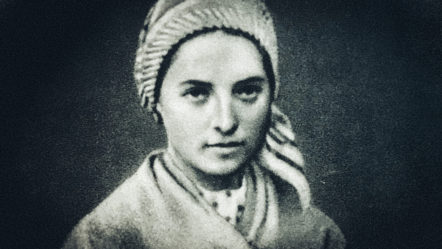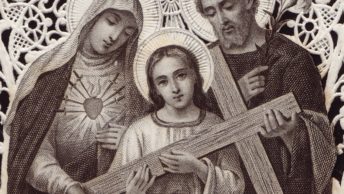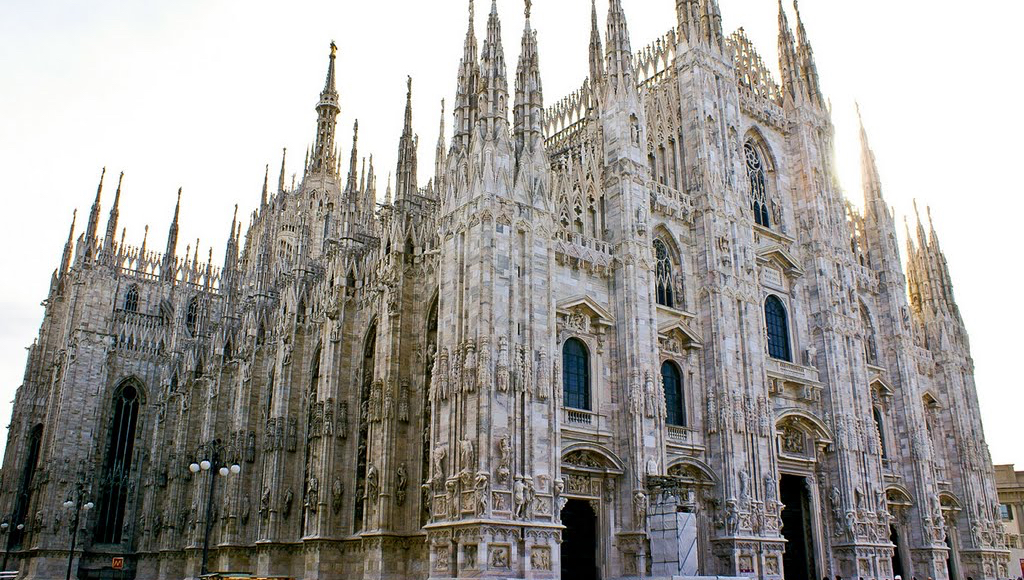And Jesus replied, “Then every scribe who has been instructed in the kingdom of heaven is like the head of a household who brings from his storeroom both the new and the old.” (Matthew 13:52)
This is an obscure yet intriguing sentence with which Jesus concludes his teachings about the Kingdom of Heaven by means of parables during the last several Sundays. It reveals a most reassuring fact about this Kingdom applicable to each one of us: from the beginning of time, God the Father has thought of me both as an individual and as a future member of his divine family.
From the dawn of time, he has been “obsessed” with me, and, since then, he has decided that he will make me his and that he will never let go of me! God’s choice of each one of us was made since the beginning of time (the old) so that our life in Christ may be renewed daily by the incredible thought of being the Father’s children (the new). Well, this bond, this nexus between old and new in which our lives are forever wrapped is an aspect of the “Kingdom of Heaven.”
St. Paul, in today’s second reading, conveys the very same concept in a dramatic fashion by placing Jesus, the only begotten Son of the Father, at the center of what is old and what is new: For those he foreknew he also predestined to be conformed to the image of his Son, so that he might be the firstborn among many brothers and sisters. And those he predestined he also called; and those he called he also justified; and those he justified he also glorified. (Romans 8:29)
Never forgetting that we can boast only of our weaknesses, (If I must boast, I will boast of the things that show my weakness. 2 Corinthians 11:30), today, we are called to consider the flip, the pleasant side of the same coin: God has chosen us as the objects of his love, and he will never let go of us.
Yet this good news is so unbelievable that it comes shrouded, like a cloud, by what Jesus refers to as the mysteries of the Kingdom. In our attempt to penetrate this cloud, we shall heed what, last Sunday, the divine Householder ordered us to do, and let the weeds grow amid the good grain until the weeding will be done at the end of time. (cf. Matthew 13:28-39)
The first of today’s parables (Matthew 13: 44) underlines our search for the incomparable treasure which the Kingdom of Heaven is. As we look back to earlier times of our life when we first decided to sacrifice a portion of what we had rather than all our possessions, we could conclude that we “stumbled” upon the Kingdom; that we “ran into” this relationship established by the Father in Jesus Christ. Hence, as we look back into our personal past, we would have a very hard time convincing ourselves that, from all eternity, God, the divine merchant, had set out to look for us to make us his individually and collectively. But this is truly, unequivocally the case!
The Father found each one of us to be of such immense value that he sacrificed his only Son to possess us.
At this point, let me add to our confusion. Aware of our embarrassing track record, we could wonder how God, before whose eyes our whole life was and is forever present in its totality, might have wondered: “Can I afford to let my only Son take on human flesh, be rejected, suffer beyond belief and die a most horrific death on a cross for this man, for this woman?”
We know what decision the Father reached. We know that we did not deserve that decision in the least—and we never will. Hence, we also ought to logically conclude that we did not “stumble” upon the treasure of the Kingdom but that the Holy Spirit has directed our hesitant steps into the right field. That is why St. Augustine, who was very much aware of the weeds in his heart and of being, for a long-time, “poor-quality fish,” destined to be thrown out, would cry out that “all is grace; all is an unmerited gift from God.”
We ought to resist the urge to live free of the confusion and stunning sensation that must be taking over our mind. We should rather live each moment with a sense of awe, wonder and incessant, all-encompassing gratitude.
Years ago, I stumbled or, more correctly, I was led by the Holy Spirit to read a prayer by St. Bernadette Soubirous, the girl to whom the Blessed Mother appeared at Lourdes as the Immaculate Conception. This simple peasant girl understood quickly and clearly the mysteries of the Kingdom. She learned to live each day with a deep-seated sense of gratitude for all that was happening in her humble life.
For the extreme poverty of Mom and Dad, for the loss of our watermill, for the extra mouth to feed that I was to them, for my younger siblings for whom I cared, for the sheep that I led to pasture. Thanks. Thanks, o my God! For the District Attorney, for the Police Chief, for the cops, for the initially rude words with which my pastor addressed me, for the days on which you appeared to me, O Virgin Mary, for those on which you did not show up, I will never be able to thank you enough until we meet again in Heaven.
For the blows to my face, for the practical jokes, for the insults of those who took me for a liar, for those who considered me driven by self-interest, thank you, o my Lord.
Thanks, thanks because if you could have found a girl more insignificant you would not have chosen me!
For Mom who died far away from me, for the pain I felt when Dad who had come to visit me in the convent and, rather than holding his little Bernadette tight in his arms, simply addressed me as ‘Sr. Bernard,’ thank you, Jesus.
Thank you for filling my super-sensitive heart with so many sorrows. Thank you for the numerous reprimands that I received, for the soul that you gave me, for the aridity of the desert that I had to cross, for the inner darkness, for your visions and revelations, for your silences, for your absence and comforting presence, many thanks, o my Jesus.
What a lesson about the treasure of the Kingdom that we are learning from St. Bernadette!
Many thanks to you, oh our God and Father!








